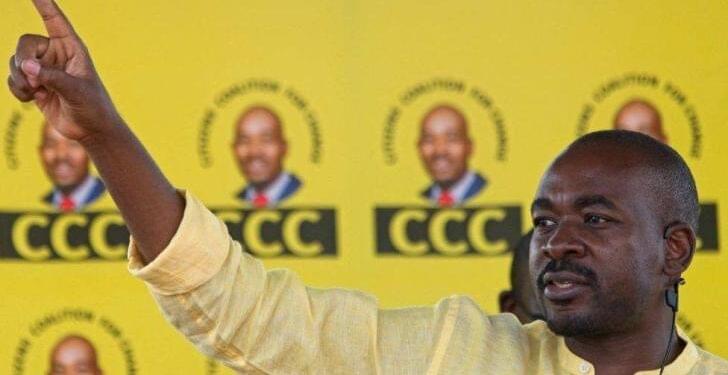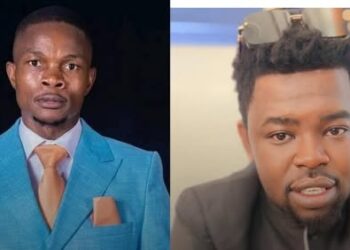When Mr Nelson Chamisa grabbed power from Dr Thokozani Khupe in dramatic and violent fashion that almost saw Dr Khupe being burnt inside a thatched hut in 2018 during the burial of opposition strongman Mr Morgan Tsvangirai in Buhera, Manicaland province, he set out to build a political party “in his own image”.
Dr Khupe was a shoo-in to succeed the late Mr Tsvangirai, who was the founding leader of the opposition Movement for Democratic Change (MDC), which gave birth to numerous opposition parties and subsequently Citizens Coalition for Change (CCC). Dr Khupe was the vice-president of the party elected at the party congress before Mr Tsvangirai appointed Senator Elias Mudzuri and Mr Chamisa as co-vice-presidents in 2016.
When Mr Tsvangirai died, Mr Chamisa manoeuvred his way up to the throne. He set out to create a political party where himself and only himself would have a voice of reason and a monopoly of ideas, analysts say. The big tent of opposition political parties that he copied in 2018 from Azimio la Umoja of Kenya was meant to help endorse him as the main opposition political figure in the country.
All other political players running fragmented outfits like Mr Tendai Biti (People’s Democratic Party), Mr Welshman Ncube (MDC N), Mr Job Sikhala (MDC 99), Mr Jacob Ngarivhume (Opposition Transform Zimbabwe), among others, were enticed to come under the shed anchored on him as the trunk of the tree. It is for that reason that some people on social media said CCC stands for Chamisa Chete Chete.
Fast forward to the run-up to the August 2023 general elections, Mr Chamisa was accused of side-lining old guards and replacing them with new faces who only knew him as the leader and “demigod”. His critics say he orchestrated the “loss” suffered by Mr Biti in the primaries to contest as an MP. Voices have been loud across the country that he imposed candidates in council, parliamentary and senate in many areas.
The chaos in Bulawayo where his party fielded candidates late was blamed on him as the party list came late, with a lot of surprises as some people who had won primaries were replaced by those they had defeated in the primaries. Talk of democracy!
When critics asked about the party structure of CCC, they were met with ambiguous statements pointing to ambiguous structures and ambiguous strategies. This ambiguous structure is centred around Mr Chamisa. Ambiguity breeds confusion and a structureless body breeds chaos. That is why Mr Sengezo Tshabangu has emerged as secretary-general of the party recalling MPs, Senators and Councillors. The Speaker of Parliament, Advocate Jacob Mudenda has per the law accepted the letter for recalls from CCC. Remember Mr Tshabangu is the only “known secretary-general” of CCC.
Although Mr Chamisa and colleagues have disowned Mr Tshabangu, what is notable is that the crisis that CCC finds itself in was authored by Mr Chamisa from the very beginning because of his self-centred approach. He now has to approach the courts to fight Mr Tshabangu, otherwise he might be the next to be recalled. It is now common knowledge that Mr Chamisa lost the August Presidential election to President Mnangagwa. He has failed to prove otherwise in any court of law.
However, Mr Chamisa has continued to pull attention to himself, and last week ordered CCC councillors, senators and parliamentarians to disengage from official national business, chiefly because he is not happy with the outcome of the Presidential race. An academic contributing to a social media discussion nailed it when presenting this scenario.
“Would you not say we have a crisis of incongruity in that Chamisa’s political ambitions of presidency at National Government level versus the real and urgent business of delivering in Local Government and parliamentary/constituency affairs are not aligned? Do you suppose that the agency within him will drift him towards creating a “national” crisis versus hunkering down and saying to councils and parliamentarians let’s work to outshine, outfox and outdo Zanu-PF and show the contrast and create competition (Local Govt and constituency level) and at a national level? They (must) do the shadow government thing where any policy or deed the Zanu-PF government does well or bad they weigh in positive or in opposition while articulating how they would do things.
I get the sense that they have descended into Shaisano politics rather than being a policy and constitutionalism-based example of what we should expect if they were in charge of the whole tootie, the political choice of the masses is still more informed by polar choices than by choosing a good thing.
We are almost always told to choose CCC because Zanu-PF is bad and has failed, not because we can actually see or know (through action) that CCC is indeed truly better.
By “disengaging” are they not squandering the platform the population has given them so far?”
Another commentator said the fact that CCC had no constitution or membership register and known structure meant “anyone can be anything”, adding that if Tshabangu is said to be “fake”, then Chamisa is “fake” as well, since no congress was held to elect him as party leader.
“Without any constitution, Chamisa himself can’t prove who he is in the CCC, with no membership register, and can’t disqualify anyone’s claim to be anything without crushing his own claim to be president.
It is a dicey situation. That is why he does not quite know how to proceed now. Maybe the party CCC is also fake, just a shelf party for Chamisa personally. If Chamisa appointed himself president; party has no constitution; no address; no office; no bank account; then anything goes there.
Sengezo Tshabangu has declared himself SG. Maybe more is coming. The problem emanates from Chamisa.”
In response, the Minister of Information Publicity and Broadcasting Services, Dr Jenfan Muswere, last week said Mr Chamisa was vainly trying to rally Zimbabweans to despondency and to mislead the global community about a non- existent post-election crisis in the country.
“There is no constitutional crisis in Zimbabwe. There has never been such a crisis even as we headed towards the 2023 harmonised election.
Mr Chamisa has not subjected his election fraud claims to a judiciary test in terms of the constitution which clearly spells out the legal processes to be undertaken in the case of a disputed election outcome. Therefore, his attention-seeking rants should be disregarded by all. We are past elections, and the focus is now on the accelerated implementation of the National Development Strategy 1 (NDS1).
In terms of parliamentarians who voluntarily disengage or withdraw from parliamentary duties, the law is impartial in this regard. Any voluntary disengagement or withdrawal will be a disservice to the mandate one would have received from the electorate.
It should be noted that a quorum constituted renders all parliamentary business legitimate and legal. Therefore, Mr Chamisa must not misconstrue the internal contradictions of a political party as a legitimacy crisis in Zimbabwe,” said Dr Muswere.
It has emerged that Mr Chamisa actually incorporated Mr Tshabangu in 2018 into the MDC Alliance national executive structures before the split with Douglas Mwonzora. Mr Tshabangu is also a former Matabeleland North province chairman of the party.
His spokesman Mr Khaliphani Phugeni told the media that Mr Tshabangu became secretary-general of CCC “in the same manner Mr Chamisa became president”, adding that Mr Tshabangu had tried in vain to engage with Mr Chamisa who was now running the party single-handed and through his proxies, which is against “the wishes of the people”.
Mr Chamisa’s world was to further crumble around him with the final report of the Sadc observer mission on the August elections saying that aggrieved parties must follow laid down procedures, which is approaching the courts of law, something which Mr Chamisa chose not to do. Furthermore, the election was said to meet the standards of a free and fair election by a host of observer missions. This means the issue of elections is now a closed chapter. The new chapter is on the Chamisa/Tshabangu Ambiguity Series.









